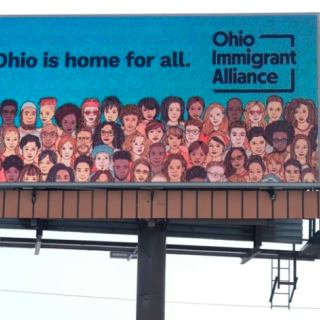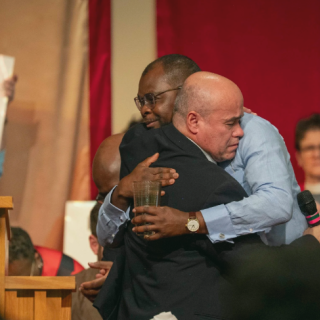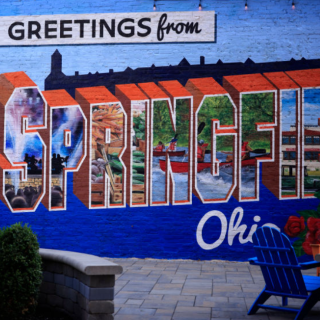Advertisement
When the City of Columbus apparatus (government) does respond to massive calls for systemic, progressive change, it does its best to do so in the most superficial, and often in the most hypocritical and insulting way possible.
The City government functions as a corporation – according to Council President Hardin – wherein our Mayor acts as CEO and our City Council acts as a Board of Directors, and then consistently offers the people (the City’s “customers” if this analogy is to continue) less than half of the products we demand while trying to make us believe we’re getting the best they can offer.
When the people of Columbus demanded – twice – that our City government better reflect the needs of its citizens through a district-based Council system with substantial campaign finance limits, the “Board” opted to pour millions of dollars into defeating that effort.
In response, we will have an expanded City Council starting next year – except that the people in the Near East Side and Clintonville will have as much say as the people in the Hilltop as to who represents who, where, and anyone of means is welcome to give their candidates of choice up to $13,000.00 per voter.
When a group of people demanded that the City do something substantive about housing – first through meetings, then through public calls, then through direct actions in front of a few key City officials houses, first they embarrassed themselves by attempting to detain the people making those demands on behalf of the most vulnerable within the city, then provided a quarter of the resources necessary for those for whom people advocated.
Two years ago, a Black-led group of organizers, professionals, clergy, activists, and family members of victims called the Columbus Police Accountability Project demanded that the US Department of Justice (DOJ) investigate and prosecute an obvious pattern and practice of racialized, often brutal policing. Conveniently, the Mayor’s office contacted the DOJ to request a managerial review the day before the announcement. Conclusions of that review were released to the public in February of this year through the DOJ’s Community Oriented Policing Services (COPS) report, which “highlights completed technical assistance and outlines a roadmap to support the implementation of reforms within Columbus.” Just for good measure, the Columbus Division of Police announced the creation of a Gang Response Unit, which would purportedly serve the same function as (but somehow act differently than) the “Jumpout Boys,” two who shot and killed Henry Green in June 2016.
Nothing in the report examines the sort of racialized policing that resulted in the deaths of people like Ma’Khia Bryant (age 16, May 2020) Ty’re King (age 13, September 2016) Green (age 23), Casey Goodson, Jr. (age 23, December 2020), Donovan Lewis, (age 20, August 2022) or any other of the dozens of Black people whose lives had been devastated by well-protected rogue Columbus police or its affiliates at the time the requests were made. Nothing in the report discusses the circumstances by which people like Timothy Davis (age 31), who was beaten to within an inch of his life by police for reasons not elucidated until a lawsuit brought details to light.
About a week after the DOJ released its report, an officer shot 66-year-old Michael Cleveland in the back, paralyzing him.
City partners like the Community Shelter Board that pays their Executive Director $350K per year to run it, maintains a 15 percent rate in finding permanent housing for those seeking it. In the meantime, members of groups like Food Not Bombs, FIRST Collective, JUST and Heer to Serve continue to cultivate mutual aid programs all across the city without any support from City Council and often face resistance from the Mayor’s office.
I have written extensively about the planned inefficacy of the City’s bait-and-switch tactics regarding police accountability in this and other publications. One of those opinions probably lost me a job with a City-backed organization. It definitely prompted a response from the inaugural chair of the Civilian Review Board (Janet Jackson), who refuted my claims with promises of rigorous accountability and solidarity amongst its board members.
At the end of last year, a group of very enthusiastic MAGAs – Proud Boys, 3 Percenters, a smattering of alt-right “Christians” and other usual suspects – disrupted an event at a church because they didn’t approve of the notion of drag queens reading stories to children. At that event, a member of the Columbus police’s “dialogue team” was seen high fiving a Proud Boy. In case you forgot, leadership within the Proud Boys (ahem, “western chauvinists”) is being investigated for their participation in the January 6th insurrection.
One of the Civilian Review Members rightfully decried Columbus Police’s mishandling of the event. Gambit Aragon was subsequently removed from the board. Last month, the chair of that board – Janet Jackson – announced her resignation.
The Columbus Police Accountability Project recently filed paperwork as a 501(c)(3) nonprofit. The gaping hole intentionally put in place of real accountability will be filled by the people since the City seems either unable or unwilling to fill it adequately.
In early June, the annual Be Easy Day will be held to commemorate and celebrate the life of Henry Green, led by his mother Adrienne Hood. Ms. Hood, a leader among the organization Ohio Families United Against Police Brutality, recently announced her candidacy for Columbus City Council. At the end of the month, the annual Tank Day Celebration – in honor of Casey Goodson, Jr. – will feature mutual aid, family activities, arts and entertainment--all of which remind us that a united community can best address the issues we face.
As bills like the George Floyd Policing Act flounder in Congress, the Supreme Court guts protections for women, and statehouses like ours strip protections for all women and Black and poor populations everywhere, we look to our leaders to protect and uplift us. When they fail in that duty, it’s up to the people to do it for them.
If the City of Columbus has any sense of civic responsibility, they’ll stay out of our way. Who knows? After realizing that the people tend to do the jobs we ask them to do better than they ever have, they might actually support the work we’re already doing.




